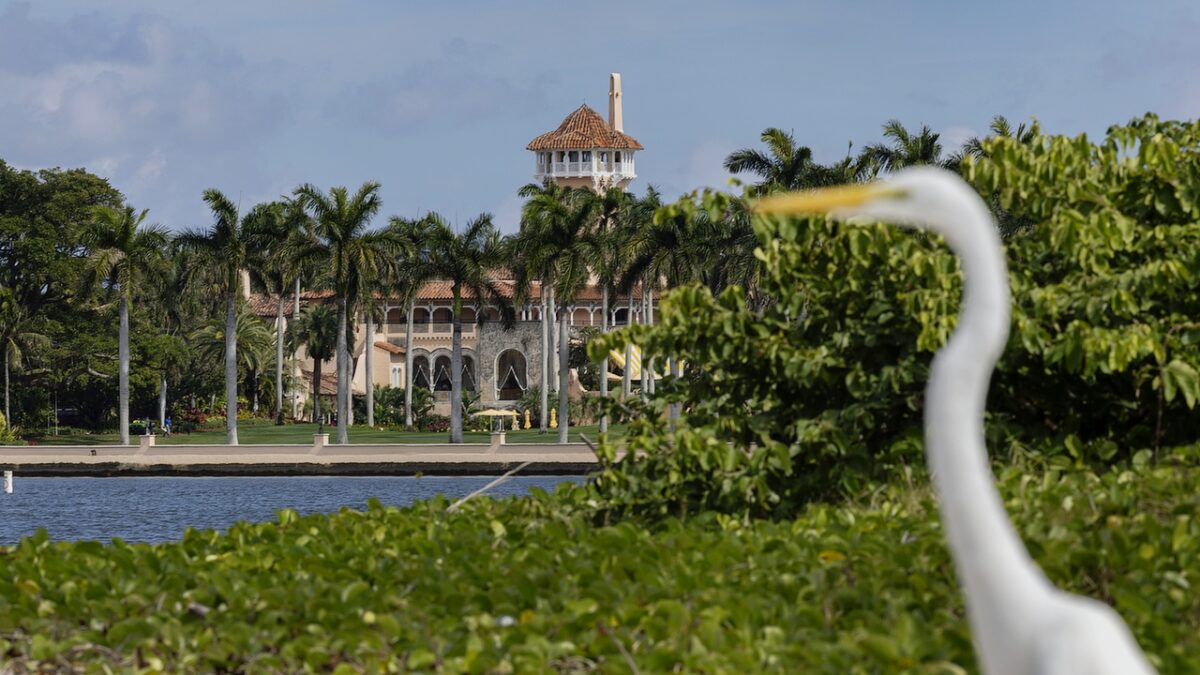Random People Are Sending Hilarious Letters to Judge Cannon Offering Their Services as Special Master to Review Mar-a-Lago Documents

Joe Raedle/Getty Images
It’s no surprise that a court case involving a former reality television star ex-president would attract media attention, and the court docket in one of the cases involving the FBI search at former President Donald Trump’s residence at Mar-a-Lago now includes multiple unsolicited letters from members of the public offering Judge Aileen Cannon advice and volunteering to serve as special master to review the documents seized during the search.
The Southern District of Florida court docket in Trump v. United States of America has already yielded some quality entertainment content, as what I previously dubbed Trump’s “Island of Misfit Toys legal squad” had repeated stumbles figuring out the federal court’s electronic filing system and formatting their motions properly, resulting in the clerk of court sending them instructions to please use the forms on the court’s website.
On Aug. 22, Trump’s attorneys filed a motion demanding that the Department of Justice cease their review of the seized documents until a special master (an independent third party) could be appointed to review them for potentially privileged material. The legal arguments presented by the motion were met with skepticism and even mockery by many legal experts, and Cannon’s decision to grant the special master request raised eyebrows, with numerous commentators panning the ruling as not supported by law and even questioning the judge’s ability to rule impartially in a matter related to the former president who appointed her to the bench.
The person who might serve as special master has not yet been selected (if it even happens, depending on how a potential appeal by the DOJ turns out), but several intrepid members of the public decided to write letters to Judge Cannon volunteering their services, plus one cantankerous Vietnam-era veteran who took issue with something he saw in the court file.
Because documents submitted to the court are public record, these letters were date stamped and posted to the court docket. Mediaite has downloaded these letters individually and redacted any personal contact information; the letters were originally posted in an unredacted format (an important caveat to note for anyone else who might be so inspired to mail their own such entreaties to Judge Cannon).
Here are the letters, in the order they were received by the court and entered into the docket.
The first letter was submitted by O’Rane M. Cornish, Sr., who identified himself as “A distressed US Citizen.” It was dated Aug. 20 and complains that while he was “perusing the Yahoo News face page on my computer,” he saw one of the motions filed by Trump’s attorneys and was “immediately offended and repulsed by the statement of the very first line,” which identified Trump as “President,” instead of as a former president.
“I find this extremely offensive as a citizen of the United States” and as a Vietnam-era veteran of the U.S. Air Force, wrote Cornish, noting he had attached documentation about his military service, “just so you know.” He urged Cannon to respond to this “offensive verbiage” to “repudiate this impudent claim” of “improperly” identifying Trump as “President.”
“Fact is, as I am sure you know, the USA has just one President at a time,” Cornish argued. “To allow such verbiage to go unchallenged, is to give aid and comfort to the continued efforts to undermine the Democracy” of the U.S.
“Please, I beseech you not to let that arrogant falsity go unchallenged, because it is corrosive to our freedoms — our society, the form of government we chose to live by — see what happened on January 6th?” he urged the judge, adding “the Attorneys who submitted the filing should be sanctioned for they should know better.”
In a postscript, Cornish wrote, “IN THE INTEREST OF APPEARANCE, SUGGEST YOU RECUSE YOURSELF.”
Another letter was sent on Sept. 3 by Joseph M. Inman from the Trump International Hotel in Las Vegas, Nevada, urging the judge to pick him as special master. He identified himself as “a retired person since age 39 who is currently a hobbyist in the film and music industry” who had a Ph.D. “in the ethics of Administration.”
Inman made some vague allegations of past mishandling of documents by Trump’s team, claiming to have “special knowledge as it pertains to certain White House documents sent to the Trump transition committee prior to his inauguration in January of 2017,” including at least one of which was “labeled sensitive,” related to “technology being developed by my artificial intelligence research” at a now-defunct entity called “Secret Handshake Corporation, 7T2K0,” plus “sensitive information pertaining to the South China Sea.”
He then listed his “requirements” if the court were to select him as special master, including “[a] Military Motorcade (Triple Canopy or National Guard) to safely transition me from Nevada to the case files, with an intermediary stop in Massachusetts to pick up my things,” “[a] private office space,” “[a] room comparable to my current private residence at Trump International Hotel in Las Vegas,” a budget for legal researchers and other support staff, emergency security clearance, and “[a]ny other powers the judge may see fit, to help lower the temperature for the peaceful conclusion of justice under the laws of the [C]onstitution of the United States of America.”
Topeka, Kansas-based mediator Angela D. Gupta wrote to Judge Cannon on Aug. 30, offering her services to the court with an arguably more relevant resumé than the Trump hotel denizen.
“I am writing to express my willingness and desire to serve as Special Master in the Donald Trump matter,” wrote Gupta, describing herself as “an apolitical attorney in Kansas” whose “only goal is to help you reach a just decision under the law.” She touted her “over 30 years of legal experience” and current work “exclusively in the neutral role” as a mediator and arbitrator, and offered several names as references.
“My resume is enclosed for your review,” concluded Gupta, acknowledging the obvious: “I know this is a long shot.”
Another intensely earnest letter was sent on Aug. 29 by Philip E. Rakita, and might be the best one of the bunch.
“Dear Judge Cannon (or is it Dear Your Honor),” Rakita began the letter in which he campaigned for the special master gig.
“I’m not quite sure what the job specifications are for such an assignment,” he wrote, “but I would like to offer my services for this task.” He described himself as “only a retired businessman with an amateur’s interest in history, politics, and the law, but I promise you I would perform the task to the best of my abilities” (underlining in original).
Rakita admitted his lack of a law degree — “if you feel obliged to select someone with a law degree, you can appoint me as that person’s advisor or legal assistant” — and offered to work without pay, because it “would mess with my Social Security.”
“As a citizen (native born), taxpayer, and voter, I want to help make our country a better place for all of us. Please tell me how I can help,” Rakita wrote, double-underlining the second sentence with a blue pen.
He wrapped his letter by pointing out that he had a “connection” to the Southern District of Florida court district “as both of my parents are buried there” and he had “fond memories of visiting them when they were still alive in the previous century.”
“Does that detail add anything to my application for that ‘special master’ job. I hope so,” he concluded, signing the letter “your friend and partner in Jurisprudence, Philip Rakita — Loyal American.”
—
New: The Mediaite One-Sheet "Newsletter of Newsletters"
Your daily summary and analysis of what the many, many media newsletters are saying and reporting. Subscribe now!






Comments
↓ Scroll down for comments ↓